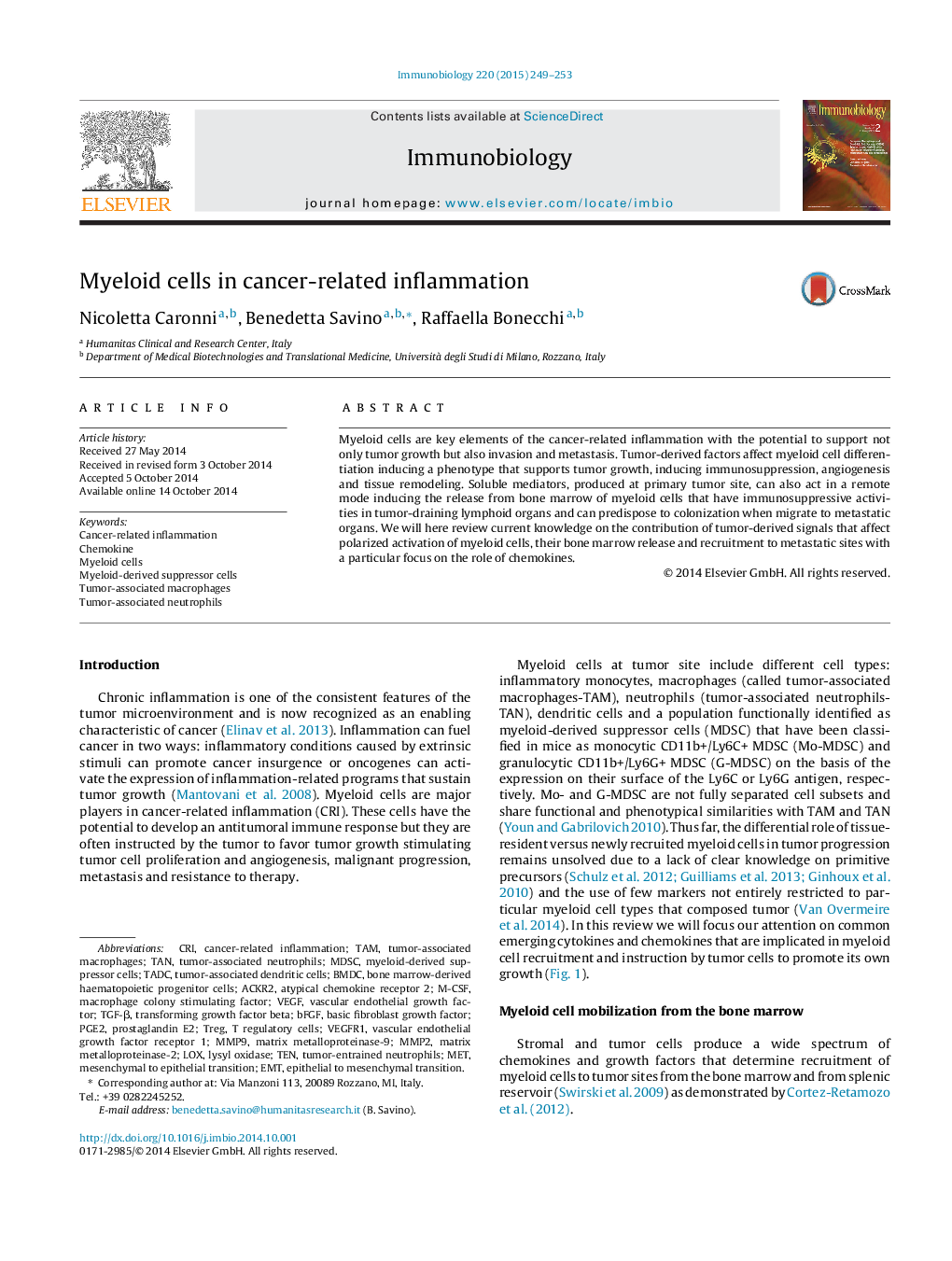| Article ID | Journal | Published Year | Pages | File Type |
|---|---|---|---|---|
| 10940986 | Immunobiology | 2015 | 5 Pages |
Abstract
Myeloid cells are key elements of the cancer-related inflammation with the potential to support not only tumor growth but also invasion and metastasis. Tumor-derived factors affect myeloid cell differentiation inducing a phenotype that supports tumor growth, inducing immunosuppression, angiogenesis and tissue remodeling. Soluble mediators, produced at primary tumor site, can also act in a remote mode inducing the release from bone marrow of myeloid cells that have immunosuppressive activities in tumor-draining lymphoid organs and can predispose to colonization when migrate to metastatic organs. We will here review current knowledge on the contribution of tumor-derived signals that affect polarized activation of myeloid cells, their bone marrow release and recruitment to metastatic sites with a particular focus on the role of chemokines.
Keywords
TregTGF-βVEGFR1BMDCMMP2MDSCM-CSFMMP9TANPGE2bFGFCRIepithelial to mesenchymal transitionLOXTAMTransforming Growth Factor BetaEMTtenT regulatory cellsMyeloid-derived suppressor cellsMyeloid cellsmacrophage colony stimulating factorVascular endothelial growth factorVascular Endothelial Growth Factor (VEGF)basic fibroblast growth factorLysyl oxidaseMatrix metalloproteinase-9Matrix metalloproteinase-2Tumor-associated macrophagesmesenchymal to epithelial transitionMETTumor-associated neutrophilsProstaglandin E2Chemokinevascular endothelial growth factor receptor 1
Related Topics
Life Sciences
Biochemistry, Genetics and Molecular Biology
Cell Biology
Authors
Nicoletta Caronni, Benedetta Savino, Raffaella Bonecchi,
